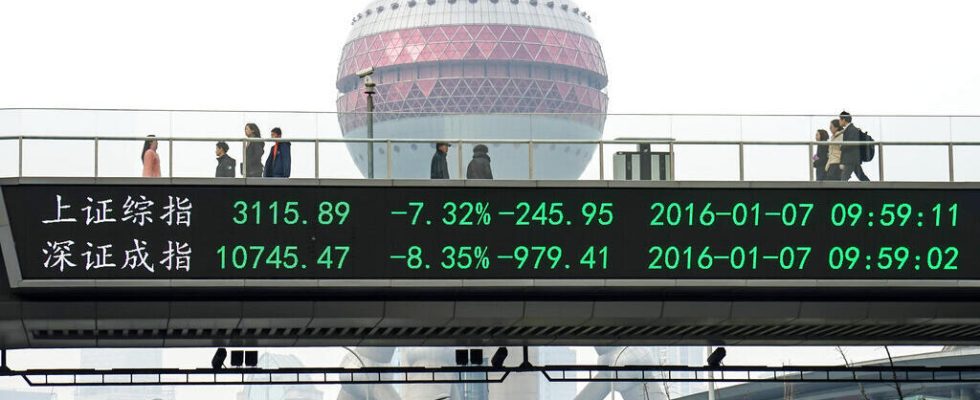The Fitch rating agency lowered China’s sovereign credit outlook to negative on Wednesday April 10, citing growing risks for the country’s public finances. A decision described as “ regrettable » by Beijing.
2 mins
With our correspondent in Beijing, Stéphane Lagarde
The American rating agency justifies its perspective review and indicates that a medium-term downgrade is possible due to large budget deficits and increasing public debt in recent years which have eroded ” budget cushions “. In other words, the risks for public finances are greater in a Chinese economy that is still heavily dependent on real estate and in transition to a growth model that the government considers more sustainable.
This observation, obviously, is not shared by the Chinese Ministry of the Economy. In a statement widely reported by the state media, the authority immediately reacted, regretting that Ficht had not seen that “ the long-term positive trend of China’s economy has not changed, nor has the Chinese government’s ability and determination to reduce risks in an orderly manner “.
For Beijing, the risks linked to the debts of local governments are therefore controllable and the official media especially see that the country maintains an A+ for its credit rating, due to the financial agency saying its ” large and diverse economy “, of his ” key role in global merchandise trade “, of its “ robust external finances » and a yuan which is now a reserve currency.
Last December, Moody’s issued a downgrade warning on China’s sovereign rating, already pointing to local debts and the real estate crisis. This Wednesday, some on social networks reacted with humor to the ministry’s protest. “ They should have said that Fitch understood nothing about “new productive forces” [nouveau concept du président chinois pour relancer l’économie, NDLR] », they quipped.
Note also that last month, Beijing set an economic growth target of 5% for 2024, an ambitious target difficult to achieve by the leaders’ own admission. Fitch, for its part, forecasts that Chinese growth will slow to 4.5% in 2024, compared to 5.2% last year.
